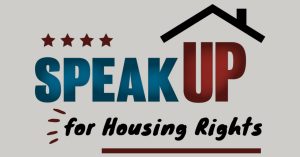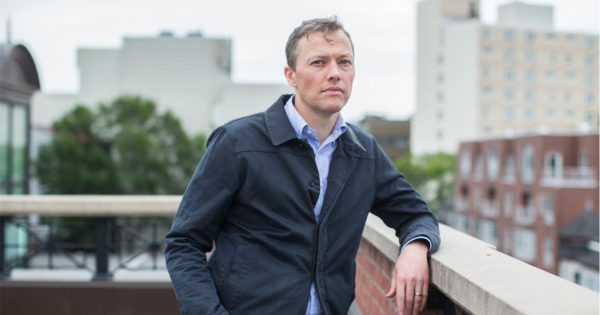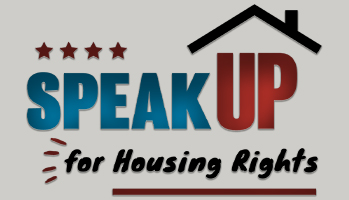
Evicted author: Housing instability, eviction is a cause – not a result – of poverty
Speaking to Nebraskans on Oct. 8, 2020, sociologist Matthew Desmond said that without strength in housing for all, other social ills cannot be effectively confronted.
Our communities cannot confront big social issues and make meaningful, lasting change unless we effectively tackle housing instability and the burgeoning eviction crisis that has sprung from it, sociologist and acclaimed author Matthew Desmond told Nebraskans on Oct. 8.
“Whatever subject keeps you up at night, the lack of affordable housing sits somewhere at the root of that issue,” said Desmond, whose book Evicted: Poverty and Profit in the American City earned the 2017 Pulitzer Prize for Nonfiction. “Whatever we care about, housing is there, too. Without stable shelter, everything else falls apart.”
Racial inequities, health care costs, educational inequality: All are directly maintained because of the far-reaching effects of housing instability, he said. It all points to the core findings of Desmond’s research: Eviction is less a product of poverty than it is a direct cause of it.
“If you care about racial inequality you should really care that most white families in America own their homes, and most Black and Latino families don’t. They’re renters, because of our legacy of racial discrimination,” he said. “If you care about health-care costs, know that the top 5 percent of ER users consume half of all hospital costs. They’re unstably-housed people with serious medical conditions.
“And if you care about education and school equality, we can’t give kids a shot at reaching their full potential if we don’t give them stable homes to live in, instead of shuffling around from school to school, place to place.”

The bestselling author, MacArthur Fellow, creator of the national Eviction Lab database and the country’s most recognized expert on the housing and eviction crisis appeared in Lincoln via Zoom. He addressed more than 500 virtual attendees at the 2020 Friends of Legal Aid of Nebraska Luncheon, mixing a 20-minute presentation on the state of eviction with a brief question-and-answer session. During the Q&A moderated by Legal Aid’s Scott Mertz, he implored state leaders, institutions, organizations, and everyday Nebraskans to confront the crisis.
“Eviction is not just something that affects people in New York or San Francisco, high-cost cities on the coasts that you hear about when it comes to housing crises. Eviction is something that affects people living in Omaha, in Lincoln,” he said.
Preventing evictions requires a comprehensive approach, but the single most effective policy change would be the expansion of affordable housing, Desmond said. And one way to do that is to expand an existing program – the federal Housing Choice Voucher Program – to everyone who qualifies for it.
“That would be a game-changer in terms of anti-poverty policy, stabilizing our communities, and heading off eviction,” he said.
Ultimately, he said, a community’s housing and eviction crisis is best addressed locally – and that means communities must recognize the far-reaching disruptions it causes. He encouraged Nebraskans to connect with local and statewide organizations that are addressing the issue, such as the Lincoln-based Speak Up For Housing Rights coalition, of which Legal Aid is a member.
The ongoing COVID-19 pandemic made frequent appearances in Desmond’s remarks. He emphasized that even with a national eviction moratorium in place at least until Dec. 31 due to the pandemic’s economic stress, the virus has exposed just how many families – including those in Lincoln, Omaha, and Greater Nebraska – are at imminent risk of eviction. The rental crisis that existed before the pandemic was “revved up” in March, he said.
While the temporary moratorium averted what Desmond predicted would have been the “greatest homelessness crisis in American history,” the measure doesn’t address one of the eviction epidemic’s main causes: Income stagnation coupled with steadily rising rents.
In the past 20 years, average U.S. rents have nearly doubled, while renters’ average incomes have stayed flat. This has meant renters have been forced to spend more and more of their monthly incomes on housing costs with little to no room for other expenses or contingencies, Desmond said.
Landlords play a role in bending this arc, especially in lower-income neighborhoods. Two tensions exist – for the renter, the right to shelter as a basic human need; and for the owner, the right to profit and to have a successful rental business.
Nationally, Desmond said, landlords’ profit margins in poorer neighborhoods, where most evictions take place, are roughly double than the profit margins in middle- or upper-class neighborhoods. The costs to operate a property in lower-income neighborhoods are predictably lower, Desmond said, but often, rents are not comparably lower in those neighborhoods.
This suggests there are excess profits that are being created by economic and racial segregation, he said, meaning low-income citizens ultimately are locked out of home ownership or moving into middle-class neighborhoods.
“That does suggest an intervention, a place where we can (step in) and say ‘Wait a minute, these profits are way higher than everywhere else. These are affecting the most vulnerable families among us,’” Desmond said. “The question becomes, ‘Is this how we want to live?’ And my answer would be, ‘No, I think we can do much better.’”
_________
Powered by
Collective Impact Lincoln

